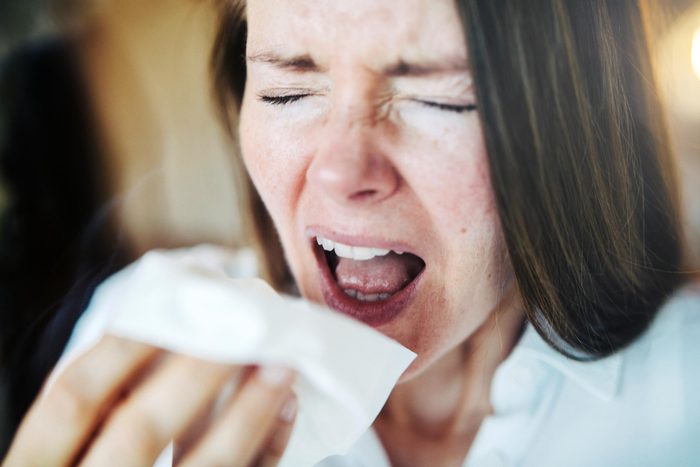
During allergy season, some of us feel like we’re underwater with our heads in a vice and haven’t slept for a week. This might sound like an exaggeration, but if you know, you know. Whether you’re visiting family and are allergic to their pets’ dander, or you’ve got a case of spring fever that led you to open all the windows (only to let the pollen inside)—when you’re suffering from allergies, you want relief and you want it immediately.
Allergy season was extreme in 2022, and now it’s back. Here are some tips and strategies to stop allergies immediately.
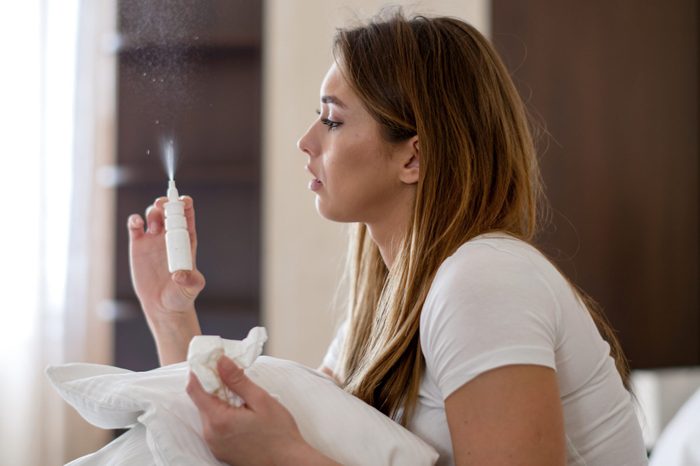
Which medications stop allergies?
If you need to stop seasonal allergies quickly, Purvi Parikh, MD, FACP, FACAAI, adult and pediatric allergist and immunologist, Professor at New York University School of Medicine, and National Spokeswoman for the Allergy & Asthma Network, recommends an oral antihistamine and/or nasal and ocular antihistamines because they’re all available over the counter and work within 20 to 30 minutes. “For very severe reactions such as anaphylaxis, use your Epipen immediately,” Dr. Parikh says. “This works in seconds, even faster than the antihistamines.”
“Diphenhydramine takes 15 to 30 minutes to start working and peaks two to four hours after it is taken,” says David Berger, MD, a board-certified pediatrician who also has a family clinic in Florida. “One-a-day antihistamines are often helpful in controlling symptoms,” Dr. Berger says, “but take about an hour to set in.”
ALSO READ The 9 Newest Allergy Medicines in 2023: Doctors on What Works, and What Doesn’t
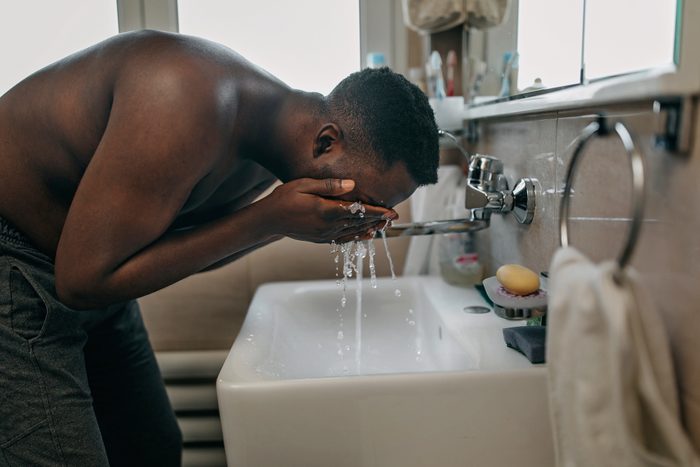
Take control of your environment
If you want to stop your allergies, you must take control of your environment. David Morris, MD, chief of allergy and immunology at Dayton Children’s Hospital, recommends these tips to help mitigate your symptoms:
- Clean your face and clothes after returning from outside.
- Shower in the evening during the pollen season.
- Keep windows and doors closed during pollen season.
- Be careful hanging laundry outdoors, as pollen may stick to it and become a source for symptoms.
- Keep pets well groomed, and clean up pet hair regularly. (Check out the best vacuums this year from our Reader’s Digest team.)
- Use dust covers on your bedding.
In addition, Dr. Morris suggests planning outdoor activities near the beginning and end of the day. “Pollen rises in mid-day; is worse on windy, warm days; and declines after rain,” he says.
Dr. Parikh agrees that removing the offending allergen is a top priority to stop allergies immediately. “If it’s the pollen, come indoors, and when you come home at the end of the day, change your clothes and shower off all the pollen on your body, or it will keep irritating you while you sleep,” Dr. Parikh says. “If it’s an animal, reduce contact and get a HEPA purifier.” Dr. Parikh points out that air purifiers don’t work for pollen and dust mites, and she recommends getting get rid of carpet or vacuuming frequently.
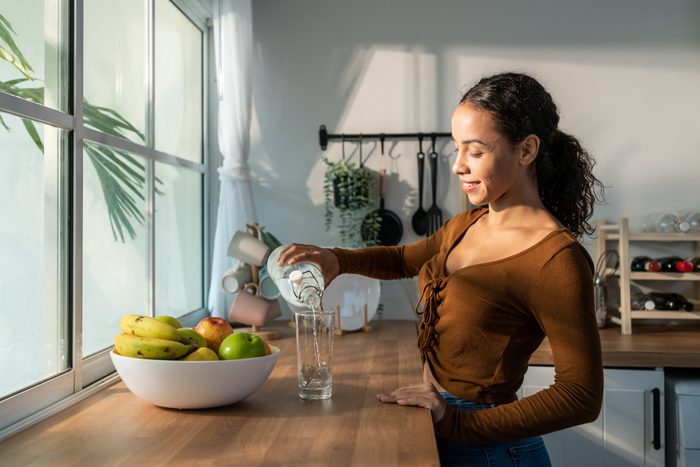
Take control of your body
There are limits to how much control we have over our environment, but what we can control is what we put into our bodies. Jill Carnahan, MD, a functional medicine doctor in Colorado, offers these tips for supporting your body through allergy season.
- Hydrate. “Water is a natural antihistamine, so drinking plenty of purified or mineral water may help,” Dr. Carnahan says.
- Drink stinging nettles tea, another natural antihistamine.
- What you eat can help allergies! Eat foods rich in quercetin (onions, cabbage, peppers, berries, and apples) or take a quercetin supplement to naturally reduce allergic symptoms.
- Avoid common food sensitivities (wheat, dairy, excessive sugar) which may decrease the burden on your immune system.
Dr. Berger also recommends avoiding high-inflammatory, processed, histamine-containing foods. “It can also be helpful to take activated curcumin and high-dose omega-3 fatty acids, which have anti-inflammatory properties similar to steroids, but (unlike steroids) are safe for long term use in most people,” Dr. Berger says.
“On a personal note, increasing my vitamin D eliminated allergies I had struggled with for more than 30 years,” Dr. Berger shares. “Due to optimizing my vitamin D level, I have been allergy-free for the past 15 years.”
The 4 Best Vitamin D Supplements Depending on Your Specific Needs, from Registered Dietitians
In addition, Dr. Berger recommends supplements that contain vitamin-C, stinging nettles, N-Acetyl L-Cysteine (NAC), quercetin and bromelain. “These all have natural antihistamine properties,” he says.
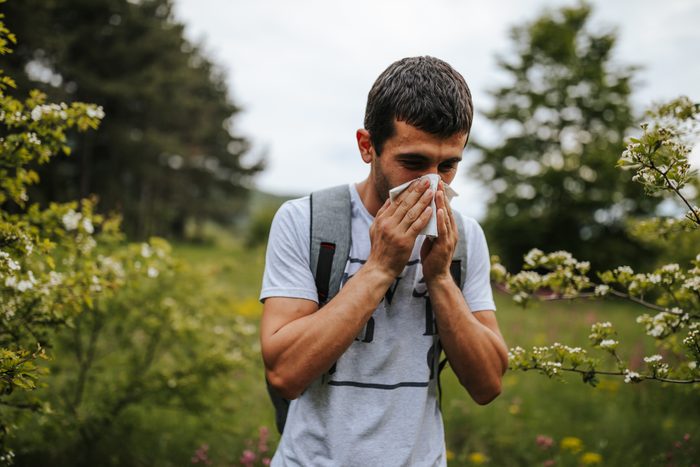
How do we stop allergies before they start?
Dr. Morris recommends starting allergy medications two or three weeks before the beginning of the pollen season, which will vary depending on where you live. In some places, allergy season starts while there’s still snow on the ground, so don’t wait until you see buds on the trees.
“You can start with over-the-counter nasal sprays and antihistamines,” Dr. Morris says. “Discuss these with your primary healthcare provider, and if these medications don’t work, you can discuss allergy immunotherapy (allergy shots) with a board-certified allergist.”
